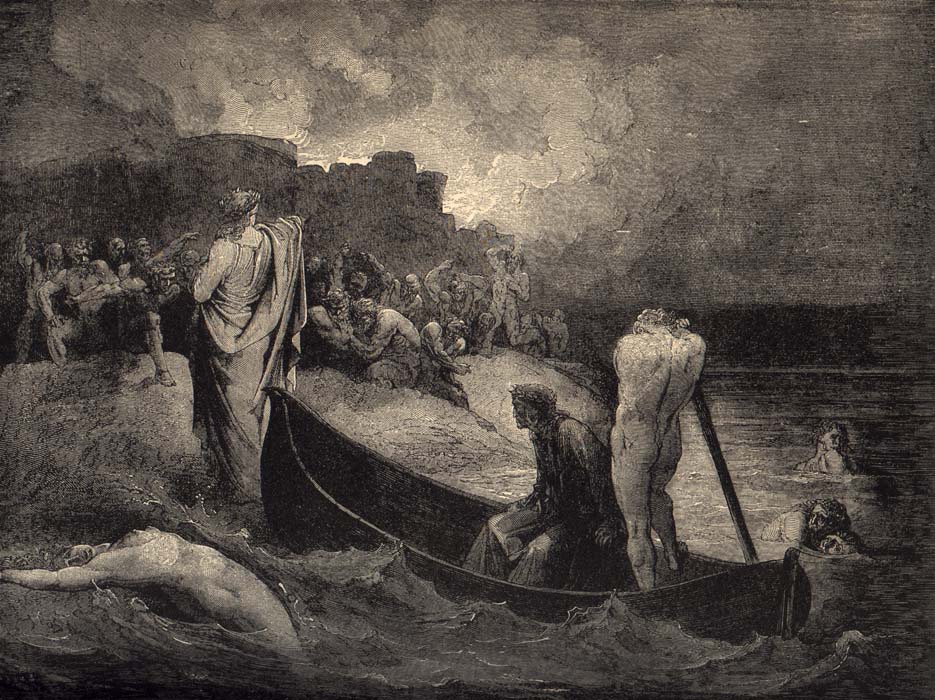The Dreamtime, or “Yorro Yorro”, or Everything Dreaming All the Time, or Everything Standing Up Alive, are different ways to convey an orientation to the world as connected and ensouled, rather than, say, imagining it as a bunch of separate objects jumbled together while hurling through space.
What we’re calling “pop-ups” attempt to reveal this connected, ensouled world, inviting us to notice and actively participate in ongoing co-creation.
From this perspective, absolutely nothing in our sleeping-world dreams is superfluous or willy-nilly, by chance or accidental. And nothing — not one single thing — in our waking-world dreams is superfluous or willy-nilly, by chance or accidental either, even if it sometimes seems this way (especially to those who may fancy themselves as “having” a dream rather than, say, in a dream that’s an integral part of a larger whole with Everything Standing Up Alive.)
This suggests that there is no such thing as an “innocent bystander,” or not in the way that we tend to think of folks who, at least on the surface of things, seem to be “in the wrong place at the wrong time,” or somehow caught in unfair, untoward, unfortunate, or heartbreaking, even tragic circumstances.
What follows is a waking-world example from a number of years ago that still endeavors to get my attention in a “pop-up” sort of way. From an Everything-Dreaming-All-the-Time perspective, therefore, it is still happening, imaginally unfolding even now, in the “place of no where” that Henry Corbin calls the Mundus Imaginalis.
It’s so hot out that even the birds have stopped singing. I’m with my two young boys at the recycling center around the corner attempting to return a truckload of empty Pellegrino bottles, when someone in line ahead of us gets into an altercation with the fellow in charge. Apparently this same would-be patron had been at the recycling center days before and caused something of a ruckus. Recognizing him, the fellow in charge refuses the guy service.
Things escalate quickly, as if a rapid, almost instantaneous expansion of gases occurs and one of those improvised explosive devices is about to explode, indiscriminately spewing recyclables over everything within striking range. Several waiting-in-line people immediately grab their recyclables, heave-ho them into their respective vehicles, and leave without so much as a word.
I weigh leaving too. Fourteen dollars and thirty-five cents, or whatever piddly little amount we’ll get for our recyclables hardly seems worth it, even if the proceeds have been promised to the boys. But I’m lazy and a bit like Macbeth,

Stepped in so far that, should I wade no more
Returning were as tedious as go o’er.
Only where Macbeth’s ‘in blood’, I’m in recyclables.
I look over to see the boys under the shade of an olive tree, sitting contentedly on the grass perimeter of the parking lot while playing with our dog, blissfully unaware of the pressure cooker bomb that’s threatening to blow over here, and decide to hope for the best.
As if on cue then, in a hope-is-not-a-strategy sort of way, the disgruntled would-be patron snatches a beat-up, red metal scale out from under a big bag of recyclables belonging to a young woman at the front of the line.
“Qué la chingada?” she blinks, bewildered, as the guy bench-presses the scale then, holding it high over his head the way a winning boxer displays his title belt after a championship match. “Qué chingados es eso?” the young woman screws her face toward the rest of us, emphatically placing her hands on her hips.
With the scale held hostage, the guy seems to be betting that the fellow in charge will be forced to contend with him. Only the fellow in charge doesn’t contend with him; he ignores him. Utterly. As though the guy with the scale is not even there. Which only provokes the guy with the scale even more. He threatens the fellow in charge with the scale then, like he might bash him over the head with it.
Evidently, however, the fellow in charge is no stranger to being threatened with violence. He turns to make his way over to a dark, cave-like shipping container that serves as both a portable receptacle for recyclables and a makeshift office, where he sits with a fixed and flat expression while leaning impassively on the hind legs of a dingy, white plastic lawn chair with his back to a wall of crushed recyclables.
“Hey, Pendejo!” the young woman at the front of the line shouts to the fellow in charge. “Tell him to give us back the scale.” But it’s as if the fellow in charge has fled the scene somehow, leaving only his unresponsive body behind. So the guy with the scale turns to threaten the rest of us with it now.
And just like that, a stubborn two-way impasse devolves into an all out, no-holds-barred, battle of wills, with everyone vying to get what we came for, each according to his or her accustomed style. The wrathful fighting each other on the surface of the River Styx. Hell, it turns out, is not some place we go to when we die; it’s something we make right here and now.
Things continue to escalate until finally three police officers arrive. As the officers corral the disgruntled guy over to the edge of the parking lot, where they attempt to get his side of the story, the sullen fellow in charge emerges from the shipping container. Strangely, then, it’s “business as usual”, almost as if what just happened never happened. Only it did happen. And, as I weigh my recyclables, collect the money, and drive away, it’s still happening for the guy being questioned by the police. And I’m still trembling.

My good guess is that the general gist of this event is clear without having to add more of the dramatic details. In order to not get caught on the surface of the drama, however, we’ll want to focus our attention through the details, through their surface display. Only then may we begin to sense what the event is attempting to do imaginally.
From the general to the specific there are a few things worth noting. First, we are generally able to recognize the significance of dreams (both waking and sleeping) as they are happening, and directly afterwards, even if the precise nature of their significance remains something of a mystery for a long time.
Secondly, because these waking-world events unfold like dreams they endeavor to get our attention in a “pop up” sort of way, that is, clearly. Sometimes they nag us, as is the case with this recycling event for me. “Take a look, take a look, take another look,” they seem to asking for re-spect. (The word “respect” means to take another look.) This is because, as James Hillman reminds us, “The soul is most profoundly moved by images that are unnatural, distorted, twisted, and in pain.” Imaginal presences work to move us out of our general comfort zones by thrusting us, sometimes repeatedly, into unknown territory. And all this is aimed, I contend, at revealing the spiritual soul side of things.
Thirdly, it may take a long time before the precise significance of these events begins to be revealed to us. It’s taken the better part of a decade of noticing and tending the event I’ve just described to begin sensing what it wants from me. Therefore, just as each of us gets the god we’re capable of, we can only ripen into capacities for radical receptivity.
And finally, it’s this very dedication on the part of images vying for our attention – including a sometimes dogged determination on the part of pop-ups – that reveals the love and devotion the imaginal realm has for us.
What this event continues to reveal specifically has to do with will forces and the Fifth Circle of Hell conditions that result from not getting my way. The original event helped me to see this in an “over there” kind of way, the same way that dreams help us to see things. It also reveals White privilege, systemic racism, and the disparity between the comfortable classes and those living close to the edge fighting to survive (though this may not be clear from the details I’ve included in this particular retelling). Most importantly, however, behind the event itself, the aim of this “seeing” has everything to do with what our old friend and mentor, Rumi, advocates as the “path of annihilation”, with our own effacement. More on this in my next post.
In the meantime, the task is to notice and receive this pop-up attention from the imaginal realm. This simple act of noticing and receiving imaginal attention simultaneously reciprocates it. And as we lend more and more of our attention to noticing the activity of pop-ups, we develop capacities that work to focus our gaze through the images (or through the details of the waking-world event) to the presences behind them. Additionally, we begin to sense what is being asked of us from a connected, ensouled universe, not merely from the “inside” of being, or from what it feels like to be us from the inside (as though we’re separate objects in space). Over time, with patience and a good deal of practice, we learn to trust the wisdom and impeccable timing of the Dreamtime and to count on it.




“Everything standing up alive” … beautifully imagined. Thank you for this invitational opening into the mystery of life ?
Thank you for these kind words, Jacque, and for your ongoing interest in and support for Dream-Centered Living.
Dear Dream-centered-living, life-bearing wilderness woman: So! Very Glad! to be Liking you here in electria-f, this morn, at last. Vital, critical work, joyous, freeing! Thank you. Always Appreciating! and Love, love for/in/of/with/nearby including far and All in Continuing Interest and Support; { } + 1 smile . . . more or less, prn { }
Dear Mary, thank you! + 1 smile more. Very grateful for your support, as always. Don’t recall ever being referred to as “life-bearing wilderness woman” but remember what our old friend Rumi has to say on the subject: “Whatever we really see, that’s what we are.” Let’s start a Life-Bearing Wilderness Women’s Club! This work is “Bear Medicine” that’s for sure — among the strongest medicine and healing potential there is, and pop-ups are KEY. Thanks again for the shout out.